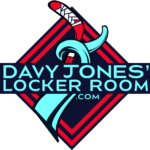Everything moved too fast for Matty Beniers to glean from his perch on the bench whether the referees missed a holding call during Vegas’ game-winning scoring sequence Tuesday. To him, it’s a moot point.
“It’s tough. It’s very fleeting, very fast,” he said the next morning at practice, gaze fixated across the locker room recalling Jack Eichel’s blistering breakaway and Oliver Bjorkstrand’s desperate backchecking to thwart him. “It’s tough in the moment to see that– is he holding him or is he just cutting him off because he’s a little bit in front of him?”
Mild-mannered, respectable Bjorkstrand, who could muster only a composed “oh, wow” receiving news of his All-Star selection earlier this year, was as angry as he’d ever been losing to the Knights.
As the lone body trailing Adam Larsson and André Burakovsky’s unsuccessful two-on-one in overtime, Bjorkstrand bore the brunt of the defensive responsibility when an inevitable retaliation hurled the other direction. Realizing his outnumbered circumstances, the winger did what he could to swipe the puck from Eichel, but the distance was too great, William Karlsson’s nagging position far too intrusive.
Eichel broke away from the pack and beat Philipp Grubauer glove side. Two hundred career goals for the Massachusetts native.
Nobody could blame Bjorkstrand for slamming his stick along the boards, for hiking his leg up and chucking it across the ice onlooking the Knights’ celebratory huddle. Having scored his team’s fourth goal of the game– and third-straight of the final frame to surge for a comeback two-goal lead– the win was supposed to be his.
Fifty-one minutes spent scraping together a substantial lead all to blow it in the blink of an eye.
Nevertheless there’s debate was to the object of Bjorkstrand’s frustrations. Many fans have voiced their concerns online as to the existence of a missed call on Karlsson with potentially outcome-altering ramifications.
Viewing the two-on-one from a front-facing angle, Karlsson appears to tug at Bjorkstrand’s stick, rendering him helpless to defend Eichel– nothing egregious. From the side, the offense resembles an overt yank apparent by the angle of Karlsson’s elbow. Slowed down, as Bjorkstrand swung his arms to gain speed his stick accidentally entangled with Karlsson, turning that ‘high elbow’ into an attempt to avoid contact.
Each shot fractures the moment, adds another facet of visual interpretation impossible to marshal into one certain ‘yes’ or ‘no’ as to whether a call was truly missed.
Seattle’s coaching staff watched the bench floor screens as the arena emptied behind them, Brandon Tanev stuck around to chat with on-ice officials once his team filed down the tunnel– all merely circumstantial evidence. From the bench’s angle, the play may have appeared nearly offsides.

Tye Kartye admitted there was “obviously” a “little bit of interference” on Bjorkstrand, but he appreciated the nuance of the situation. “[Vegas is] trying to win the game too and they’re doing everything they can. I’m not gonna rip on the refs and say there was a missed call or anything, but that’s just how it goes sometimes.”
“The refs really got to be sure when they’re calling penalties in overtime because that can be a game-caller for a lot of teams,” Beniers pointed out. “If they call that and it’s four-on-three, then that definitely changes the game.”
Overtime penalties are few and far between for the Kraken this season. Of the 18 post-regulation periods played, penalties have been called for either team four times. Two were power plays for Seattle, who converted once– Oct 30 at the Tampa Bay Lightning. For reference, Seattle’s power play operates at a 21% (17th) success rate on the season in general.
Calling the penalty initially would have provided the perfect opportunity for Seattle two walk away with two points in dramatic fashion. Rising to game-changing moments has hardly been a strength for them as of late, and odds are they would have fumbled the chance anyways.
“I think the bigger thing is everyone wishes we didn’t get to overtime,” Beniers said. “We knew we had better, we knew we should have closed out that game.”
“As a team we’re all disappointed in ourselves.”
With fewer bodies skating and less time on the clock– the removal of regulatory features reducing the influence of chance– random plays gain a greater impact additionally inflamed by the sudden death nature of overtime. But these are the risks a team knowingly takes entering an extra period.
Good teams navigate overtime chaos and escape with a win. Better teams lock a win down in regulation where their skill isn’t up for debate. Seattle has won 33% of their 18 overtime games this season. Trailing after the second period (as they were 2-1 on Tuesday), Seattle is 2-21-5 with only five comeback wins to their name, all one-goal.
Frustration from the bench may very well have been the result of an officiating injustice. Focusing on conspiracy theories of a missed call, however, detract from the larger infraction committed by the home team: a win was right there for the taking and they couldn’t seal the deal.
“It was definitely about what we didn’t do in regulation. The refs had nothing to do with that loss [Tuesday], that’s all on us,” Kartye asserted plainly. “We should be able to shut that down before that situation ever happens, in regulation with a two-goal lead.”
Beniers found a bright side in the misery. “It sucks but I think it’s good for us because it gives us a little chip, you know, makes sure that the next time we’re in that situation, we don’t let it happen.”





 Leave a tip to support our writers and staff!
Leave a tip to support our writers and staff!